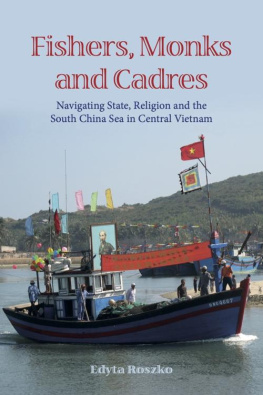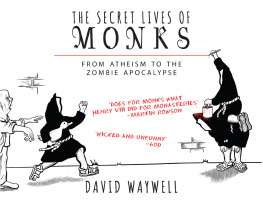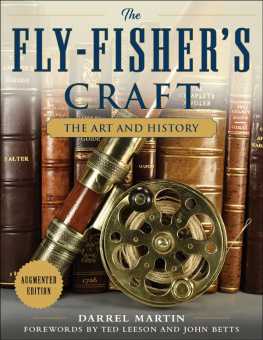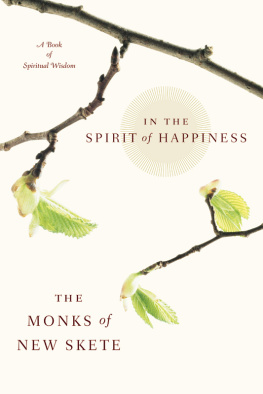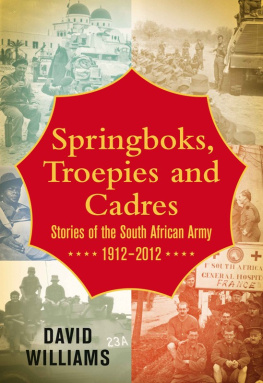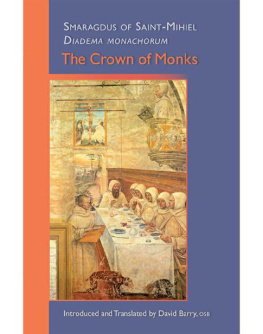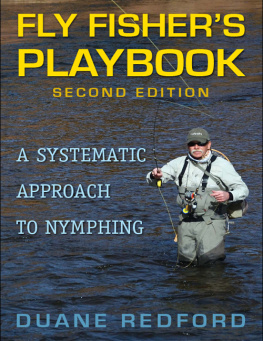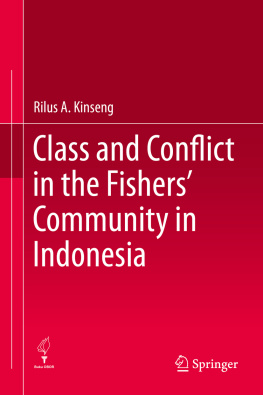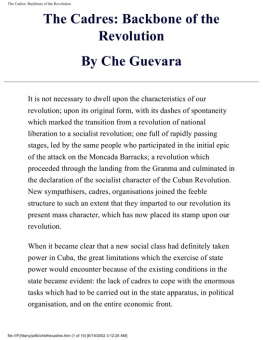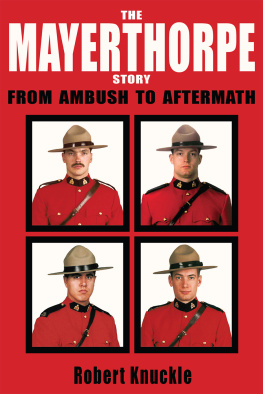Edyta Roszko - Fishers, Monks and Cadres
Here you can read online Edyta Roszko - Fishers, Monks and Cadres full text of the book (entire story) in english for free. Download pdf and epub, get meaning, cover and reviews about this ebook. year: 2021, publisher: University of Hawaii Press, genre: Politics. Description of the work, (preface) as well as reviews are available. Best literature library LitArk.com created for fans of good reading and offers a wide selection of genres:
Romance novel
Science fiction
Adventure
Detective
Science
History
Home and family
Prose
Art
Politics
Computer
Non-fiction
Religion
Business
Children
Humor
Choose a favorite category and find really read worthwhile books. Enjoy immersion in the world of imagination, feel the emotions of the characters or learn something new for yourself, make an fascinating discovery.
- Book:Fishers, Monks and Cadres
- Author:
- Publisher:University of Hawaii Press
- Genre:
- Year:2021
- Rating:5 / 5
- Favourites:Add to favourites
- Your mark:
- 100
- 1
- 2
- 3
- 4
- 5
Fishers, Monks and Cadres: summary, description and annotation
We offer to read an annotation, description, summary or preface (depends on what the author of the book "Fishers, Monks and Cadres" wrote himself). If you haven't found the necessary information about the book — write in the comments, we will try to find it.
Fishers, Monks and Cadres — read online for free the complete book (whole text) full work
Below is the text of the book, divided by pages. System saving the place of the last page read, allows you to conveniently read the book "Fishers, Monks and Cadres" online for free, without having to search again every time where you left off. Put a bookmark, and you can go to the page where you finished reading at any time.
Font size:
Interval:
Bookmark:
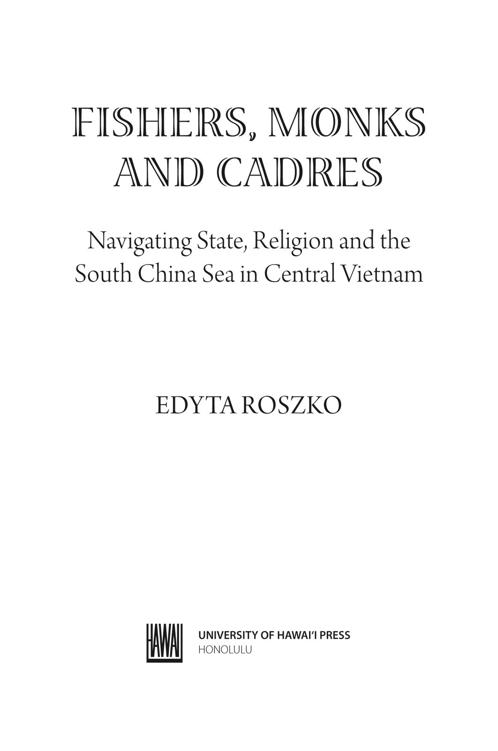
Edyta Roszko 2020
A CIP catalog record for this book is available from the Library of Congress
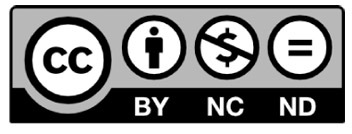
The Open Access edition of this bookis licensed under Creative Commons Attribution-NonCommercial-
NoDerivatives 4.0 International (CC BY-NC-ND 4.0), which means that digital editions of the work may be freely downloaded and shared for non-commercial purposes, provided credit is given to the author. Commercial uses and the publication of any derivative works require permission from the publisher. For details, see https://creativecommons.org/licenses/by-nc-nd/4.0/.
The Creative Commons license described above does not apply to any material that is separately copyrighted.
ISBN 9780824891183 (OA PDF)
ISBN 9780824891190 (OA EPUB)
ISBN 9780824891206 (Kindle)
First published in 2020 by NIAS Press
Publication of this volume was assisted by generous financial support received from the European Research Council (ERC) Starting Grant under the European Unions Horizon 2020 research and innovation programme (Grant agreement No. 802223) and the Danish Council for Independent Research in Culture and Humanities (Grant agreement 0602-02917B/FKK), for which the author expresses her warm thanks.
Cover image: Vietnamese fishers celebrating the opening of
a new fishing season, Sa Hunh (photo by author).
This digital document has been produced by Nord Compo.
For Oscar
T his book has grown out of a dissertation submitted to the Max Planck Institute for Social Anthropology and Martin Luther University Halle-Wittenberg in 2011. My initial interest in Vietnam began in 2002 when I went there as part of a postgraduate programme arranged by the Polish Ministry of Education and Sport. Since then, many individuals and institutions have helped me throughout this project. Before I thank them and acknowledge my gratitude and indebtedness for their constant support and encouragement, I will briefly describe how it happened that I decided to carry out research in Vietnam.
Some failures turn out to be our best friends. When in 2001 I failed to win a scholarship to study in China, I thought that I would have to give up my dream of doing research in the country that had long fascinated me. I was learning Chinese and wrote my masters thesis on Buddhism in China with a view to conducting research there. During that same year, I began attending seminars on Southeast Asia organized by Magorzata Pietrasiak at the Institute of International Relations (University of d). Why you dont apply to go to Vietnam? she asked me. I had never thought about going to Vietnam and I knew very little about it. Moreover, it was my last year of study at university and, according to the rules, I was no longer eligible to apply. When I had almost given up the idea, my thesis supervisor Sawoj Szynkiewicz exclaimed, More go-getting energy, Ms. Roszko! Their enthusiasm, encouragement, support, and trust helped convince the dean of the University of d to allow me to submit my application. Ten months later, just after my graduation, I received confirmation from the Polish Ministry of Education and Sport in Warsaw that I had won the scholarship! Without Sawoj Szynkiewicz and Magorzata Pietrasiaks help, I would not be where I am now.
My three-year stay in Vietnam (20022005) would have been impossible without financial support from the Polish Ministry of Education and Sport, which not only provided a grant but also, in an exceptional gesture, extended its scholarship to me twice. I particularly want to thank Jacek Wojtakiewicz (Department of International Cooperation), whose assistance and efficiency helped to overcome many formal constraints and make my stay in Vietnam possible. I would like to extend my thanks to the Polish Embassy in Hanoi, where I was warmly received and which assisted me whenever I needed during my early stay in Vietnam.
Upon my arrival in Hanoi in 2002, I would never have been integrated so quickly into Vietnamese society had it not been for the lively environment at the Vietnamese Academy of Social Science in Hanoi, in particular the Institute for Religious Studies, with which I was affiliated from 2002 to 2005. I am particularly grateful to its director, Professor Quang Hng, who helped me innumerable times with bureaucratic challenges. I am also grateful to the late Prof. Cao Xuan Ph and the late Dr. Nguyn Quc, as well as Dr. Ng Vn Doanh and Dr. o Th c. Special thanks also to the younger researchers: Dr. Nguyn Ngc Qunh, Dr. Nguyn Th Minh Ngc, Dr. Nguyn Vn Dng, Dr. L Tm c, Mrs. Phan Tng Vn, and many other colleagues with whom I not only had lively discussions, but also took field trips outside of Hanoi. They were my first guides through the culture and everyday life of Vietnam.
My adventure in Vietnam could not have taken on such serious and professional proportions without Andrew Hardy, the head of the cole Franaise dExtrme-Orient (EFEO) in Hanoi, who provided advice and support at critical moments during the first years of my stay in Vietnam. The EFEO also generously offered me two years of funding to study Vietnamese. In 2007 Andrew invited me to join his multidisciplinary project, The Long Wall of Qung Ngi, which he was organizing in cooperation with the Vietnam Institute of Archaeology. Andrews and Nguyn Tin ngs assistance and expertise in the field and their excellent relations with the Qung Ngi provincial authorities were invaluable for my PhD project. Much appreciated support in transcribing interviews and in collecting various documents was provided by Nguyn Hng Nhung. For teaching me Vietnamese, I am indebted to two professional teachers from Hanoi National University, L Th Thu Hoi and Nguyn Th Phng Thy, who tirelessly corrected my pronunciation and guided me through linguistic nuances. They were not only my tutors; they also became my good friends.
My doctoral studies formally began in the winter of 2006 when I became enrolled in the joint PhD programme of the Max Planck Institute for Social Anthropology and Martin Luther University in Halle. My doctoral fieldwork in Vietnam in 20062007 was made possible by financial support from the Max Planck Institute for Social Anthropology. Chris Hann, my principal advisor, was most important in welcoming me to the Max Planck Society and helping me orient myself to the research project Religion and Morality, which he initiated. What Chris Hann offered to my dissertation in terms of a postsocialist studies approach and a solid ethnographic focus, Burkhard Schnepel of Martin Luther University my second advisor provided in guiding me through maritime history and polytheistic religions and by sharing his enthusiasm for small islands. In the course of my PhD trajectory I benefitted greatly from comments and suggestions from colleagues not only in informal discussions, but also when I presented earlier drafts of several chapters at conferences, workshops, and seminars or sent my papers directly to them. I want to specifically thank Fridrich Binder, Irene Becci, Pascal Bourdeaux, Andrew Hardy, Lle Yaln-Heckmann, Kirsten Endres, Tobias Klner, Nathan Light, Agata adykowska, Agnieszka Pasieka, Magorzata Rajtar, Detelina Tocheva, Philip Taylor, Markus Schlecker and Gbor Vargyas.
At this point, I would like to thank the Institute of Culture Studies and, particularly, Prof. L Hng L, who arranged my visa during my stay in Vietnam from September 2006 to September 2007, and Prof. Nguyn Thi Phng Chm, who continued to arrange my research visas between 2011 and 2018. I am aware that my hyper-mobility in Vietnam caused many troubles for the institute that hosted me and was responsible for my research and my whereabouts. I highly appreciate their patience, help, openness, and goodwill, all of which made this project possible. I would like to acknowledge that the Qung Ngi authorities helped me carry out my project in central Vietnam. I am particularly grateful to Nguyn Hong Sn, Dr. Nguyn ng V, Phan nh , Nguyn Kim Sn, Hong Nam Chu, and L Hng Khnh. I also owe my thanks to the authorities of Ph Thnh commune (c Ph District) and of L Sn District, who warmly welcomed me as a foreigner and organized my stay in their communities.
Font size:
Interval:
Bookmark:
Similar books «Fishers, Monks and Cadres»
Look at similar books to Fishers, Monks and Cadres. We have selected literature similar in name and meaning in the hope of providing readers with more options to find new, interesting, not yet read works.
Discussion, reviews of the book Fishers, Monks and Cadres and just readers' own opinions. Leave your comments, write what you think about the work, its meaning or the main characters. Specify what exactly you liked and what you didn't like, and why you think so.

